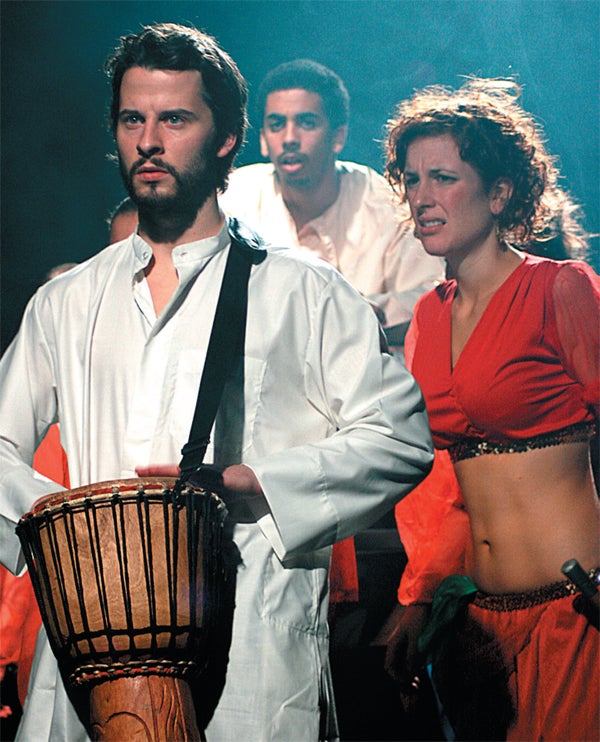How to make it as an actor

Emma Gray explains what becoming an actor involves and how to succeed in the industry.
Becoming an actor is like going on a journey: it’s a process that requires dedication, daring, some dreaming and a good guide – hopefully that’s where we come in! What happens as and when you manage to land a place at drama school? Students spend three very intensive years working hard to amass all the necessary skills needed to ensure their place as a professional actor.
Becoming an all-rounder
Actors need to be able to adapt to a range of media, so take advantage of everything you can at drama school in order to ensure that when you graduate into the big wide world you have the best possible chance of getting that first job, then the second, then the third… Bear in mind that graduating from drama school doesn’t guarantee you work for life: you have to keep working hard, keep accruing skills and keep going.
While studying at drama school you will be involved in a number of projects and performances and, if you’re attending an academy such as the Academy of Live and Recorded Arts (ALRA), you will come into contact with some practising professionals. Learn all you can from them and even stay in touch; in this industry, establishing and maintaining contacts is really important to assist you on your journey.
Showcasing yourself
In your final year at drama school students embark on one of the biggest and most important professional performances of their entire lives as actors: the showcase. These performances are set up by drama schools themselves and will generally take place in one of London’s West End theatres. All of the established agents and casting directors are invited, and it is the chance to make an impression. Everything is carefully planned to encourage agents and casting directors to attend, and they are on the look-out for new talent. Indeed, this is proven by statistics taken from ALRA showing that, of those students graduating in 2007, 75 per cent secured agents from the showcase performance alone. After the showcase, agents and casting directors will contact anyone they feel is either suitable for a particular role or else can be used in a variety of situations for a range of media. If you are lucky enough to have a number of agents contact you, make sure you take the time to decide which agency is most suitable for your personality and your career aspirations.
As an actor you must remember that securing an agent doesn’t mean that the hard work is over. Casting directors often have a list of agents that they deal with and so you might be with an agent who isn’t getting a look-in with a particular soap, for example. Having said that, there is nothing to stop you writing to a casting director yourself, as long as your pitch for a role is sensible and well-researched. You should also consider the fact that agents generally deal with theatre, television and film, but there is plenty of other work out there that requires an actor’s skills. There is the use of theatre in education, fringe theatre, role-play, corporate videos and presenting; while none of this is equivalent to playing Hamlet, it does aid your survival as an actor. Much of this work will need to be generated by you as a professional actor.
Where to find work
Certain papers and websites are good for finding work – such as The Stage, The Production and Casting Report and Casting Call Pro – and you should also keep an eye on theatre websites and not be afraid to put yourself forward for suitable roles. Networking is another excellent way of finding work: go to the theatre, attend parties and keep in contact with other actors, directors and casting directors.
A must for any actor is to make sure they are listed in the casting directory Spotlight. This is the industry’s leading casting resource and is used by the majority of television, film, radio and theatrical companies in the UK, and many worldwide. It is also a good idea to get a copy of Contacts as this handbook contains over 5,000 listings for companies, services and individuals across all branches of television, stage, film and radio. Whether you take on representation or not it is important that you present yourself well, even though money may be tight.
A good set of photos and a well put-together CV printed on good-quality paper is important and – if you have the resources to produce them – a show reel and a voice demo are also good ideas. You should also ensure that you have a good set of interview clothes that can encompass the range of characters you are likely to play. If you do secure an agent it is worth remembering that they are not managers who will shape your career. You must keep working hard and pushing your representation for suitable auditions: all part of the journey to becoming a successful actor.
- Emma Gray, marketing and development officer at the Academy of Live and Recorded
Subscribe to Independent Premium to bookmark this article
Want to bookmark your favourite articles and stories to read or reference later? Start your Independent Premium subscription today.

Join our commenting forum
Join thought-provoking conversations, follow other Independent readers and see their replies